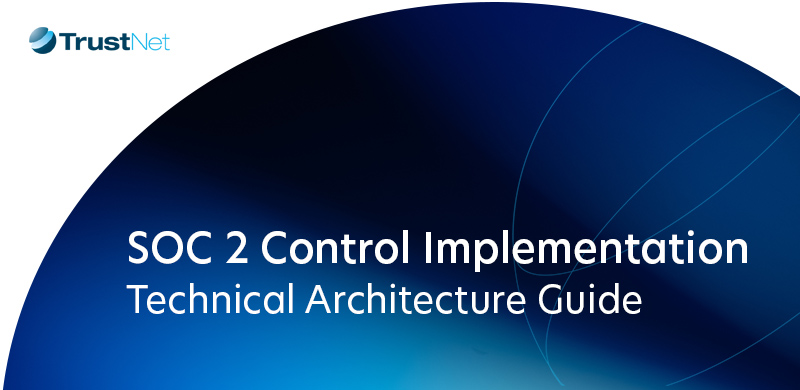Blog PCI DSS Audit Demystified: Securing Your Business Payment Ecosystem
PCI DSS Audit Demystified: Securing Your Business Payment Ecosystem

The Payment Card Industry Data Security Standard (PCI DSS) is a benchmark for businesses to safeguard their payment ecosystems against breaches and fraud. Compliance with PCI DSS is not just a regulatory formality; it’s vital in fortifying your business’s financial integrity and maintaining customer trust.
This article aims to demystify the PCI DSS audit process, providing mid-sized and large businesses across various industries with a comprehensive understanding of its importance, the intricacies involved, and actionable strategies to achieve and maintain compliance. Keep reading to learn more.
Understanding PCI DSS
PCI DSS compliance is essential for businesses that handle credit or debit card payments. Compliance helps safeguard sensitive cardholder data and shields businesses from the financial penalties and reputational damage associated with data breaches.
The framework of PCI DSS is built around 12 key requirements, categorized to cover every aspect of payment security:
-
- Install and maintain a firewall configuration to protect cardholder data.
- Do not use vendor-supplied defaults for system passwords and other security parameters.
- Protect stored cardholder data using encryption, truncation, masking, and hashing.
- Encrypt transmission of cardholder data across open, public networks.
- Use and regularly update anti-malware software or programs.
- Develop and maintain secure systems and applications by regularly updating and patching them.
- Restrict access to cardholder data to only those individuals whose job requires such access.
- Identify and authenticate access to system components through unique IDs, passwords, or other authentication methods.
- Restrict physical access to cardholder data to prevent unauthorized access.
- Track and monitor all access to network resources and cardholder data using logs.
- Regularly test security systems and processes to ensure they are robust and effective.
- Maintain a policy addressing information security for all personnel, ensuring everyone understands and commits to the security measures in place.
- These requirements form the backbone of the PCI DSS and provide a comprehensive roadmap for organizations seeking to secure their payment processing ecosystem.
For more on our PCI DSS services, Click Here
Why PCI DSS Compliance Matters for Midsized and Large Businesses
The implications of non-compliance extend far beyond regulatory scrutiny, impacting various facets of the business:
Risks of Non-Compliance:
-
- Fines and Penalties: Businesses failing to meet PCI DSS standards may face hefty fines imposed by payment card brands or acquirers, which can range significantly depending on the severity and duration of non-compliance.
- Data Breaches: Non-compliance increases the risk of security breaches, leading to unauthorized access to cardholder data. The costs associated with a data breach— including investigation, remediation, and legal fees—can be astronomical.
- Reputational Damage: Perhaps more devastating than financial losses is the reputational damage. A breach can erode customer trust, potentially leading to a loss of business that can be hard to recover from.
Compliance as a Competitive Advantage and Customer Trust Factor:
-
- Building Customer Trust: Demonstrating compliance with PCI DSS can significantly bolster consumer confidence. Customers are more likely to transact with businesses they believe are taking proactive steps to protect their data.
- Market Differentiation: PCI DSS compliance can be a differentiator in a crowded market. It signals to customers and partners that your business prioritizes data security, potentially giving you an edge over less vigilant competitor.
- Foundation for Security Best Practices: Compliance with PCI DSS ensures that businesses adopt a structured approach to data security, laying a foundation for broader information security measures and compliance with other regulations.
The stakes are high for mid-sized and large businesses. Thus, investing in PCI DSS compliance is not merely a regulatory tick box; it’s a strategic decision that safeguards the business, its customers, and its reputation.
The PCI DSS Audit Process
Navigating the PCI DSS audit process begins with determining your business’s compliance level, directly influencing the type of audit you’ll undergo.
Determining Your PCI DSS Compliance Level:
— Compliance levels are defined by the number of transactions processed annually, with Level 1 being the highest (over 6 million transactions) and Level 4 the lowest.
— The classification affects the rigor of the audit process; higher levels require more detailed audits due to the greater risk associated with processing a higher volume of transactions.
Types of Audits:
— Self-Assessment Questionnaire (SAQ): Generally suited for smaller merchants (Levels 2-4), this self-validation tool assesses security posture against PCI DSS requirements. The complexity of the SAQ varies by the merchant’s transaction environment and processing methods.
— Report on Compliance (ROC): This is a more detailed audit required for Level 1 merchants and possibly for others, depending on the acquiring bank’s discretion. It must be conducted by a Qualified Security Assessor (QSA) or an Internal Security Assessor (ISA), resulting in a Report on Compliance.
Engaging a Qualified Security Assessor (QSA) for ROC Audits:
— QSAs are professionals the PCI Security Standards Council certifies to conduct ROC audits. They bring expertise in identifying vulnerabilities and ensuring that every aspect of your payment processing adheres to PCI DSS standards.
— Choosing a QSA involves assessing their experience, understanding of your industry, and ability to guide mere compliance to enhance overall security posture.
Understanding these steps and preparing accordingly can significantly streamline the PCI DSS audit process.
Preparing for a Successful PCI DSS Audit
Here’s how businesses can best prepare for a PCI DSS audit:
-
- Begin by comparing your current security practices against the PCI DSS requirements to identify areas of non-compliance or “gaps.” This step is crucial for understanding how far you are from meeting the standards.
- Evaluate your payment processing environment to identify vulnerabilities that could expose cardholder data to risk. Prioritize risks based on their potential impact and likelihood of occurrence.
- Once gaps and risks have been identified, develop and implement a plan to address them. This may involve updating software, changing operational practices, or enhancing physical security measures.
- Engage with departments across your organization to ensure that changes are implemented in a unified manner. Compliance is not solely an IT issue; it requires company-wide cooperation.
- Maintain detailed records of all the security measures implemented in your compliance efforts. Documentation should include policies, procedures, and operational changes.
- Collect evidence demonstrating compliance with each of the PCI DSS requirements. This could be in the form of system configuration files, audit logs, and records of security testing.
Preparing for a PCI DSS audit is a rigorous process that demands attention to detail and a proactive approach to identifying and mitigating risks.
Common Challenges and Best Practices
Addressing Complex IT Environments and Third-Party Vendor Management:
- Challenges: Modern businesses often operate within complex IT ecosystems involving multiple third-party vendors, complicating compliance efforts.
- Best Practices: Simplify your IT environment where possible and ensure third-party vendors are PCI DSS compliant. Regularly review and manage vendor agreements to include specific compliance and data security requirements.
Maintaining Ongoing Compliance and Regular Testing:
-
- Challenges: Compliance is not a one-time achievement but an ongoing process that requires continuous monitoring and adaptation.
- Best Practices: Implement regular testing schedules for systems and processes. Automated tools are used for continuous monitoring, and periodic internal or external audits are considered to assess compliance status.
Fostering a Security-Conscious Culture Within the Organization:
-
- Challenges: Ensuring all employees understand their role in maintaining PCI DSS compliance can be difficult, especially in larger organizations.
- Best Practices: Develop comprehensive training programs tailored to different roles within the organization. Promote a culture where data security is everyone’s responsibility and encourage proactive identification and reporting of security issues.
By addressing these challenges with thoughtful strategies and best practices, businesses can achieve compliance and strengthen their overall security framework.
Leveraging PCI DSS Compliance for Broader Security Initiatives
By adhering to the rigorous standards set by PCI DSS, businesses can significantly enhance their security posture, protecting cardholder data and other sensitive information from emerging threats. Furthermore, the principles and practices embedded in PCI DSS compliance align closely with other industry standards and regulatory requirements.
Choosing an experienced partner is critical for businesses aiming to navigate the complexities of PCI DSS compliance while capitalizing on it to boost their wider security strategies. TrustNet is a premier provider with unparalleled expertise and a robust track record guiding businesses to successful PCI DSS compliance.
With TrustNet’s seasoned team, advanced tools, and deep understanding of PCI DSS intricacies, businesses have the comprehensive support necessary to meet and exceed compliance standards.
Elevate your cybersecurity strategy with TrustNet’s expert PCI DSS compliance services. Contact Our Experts today.




